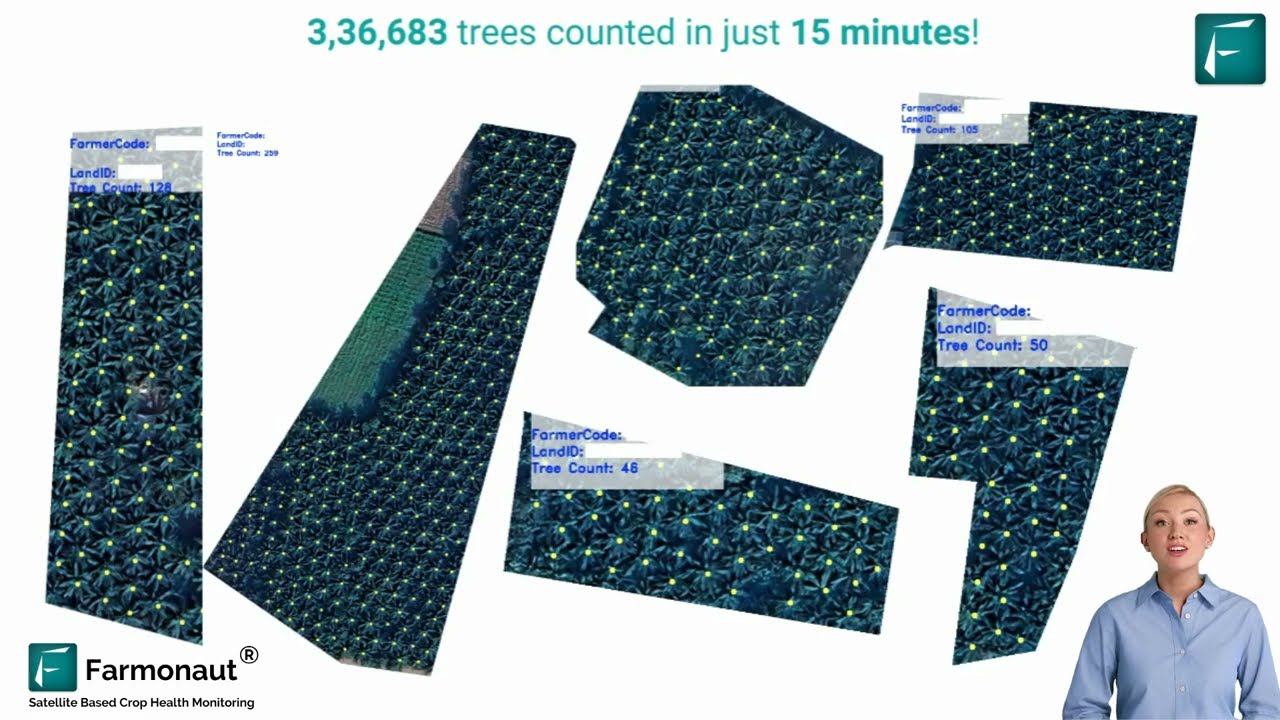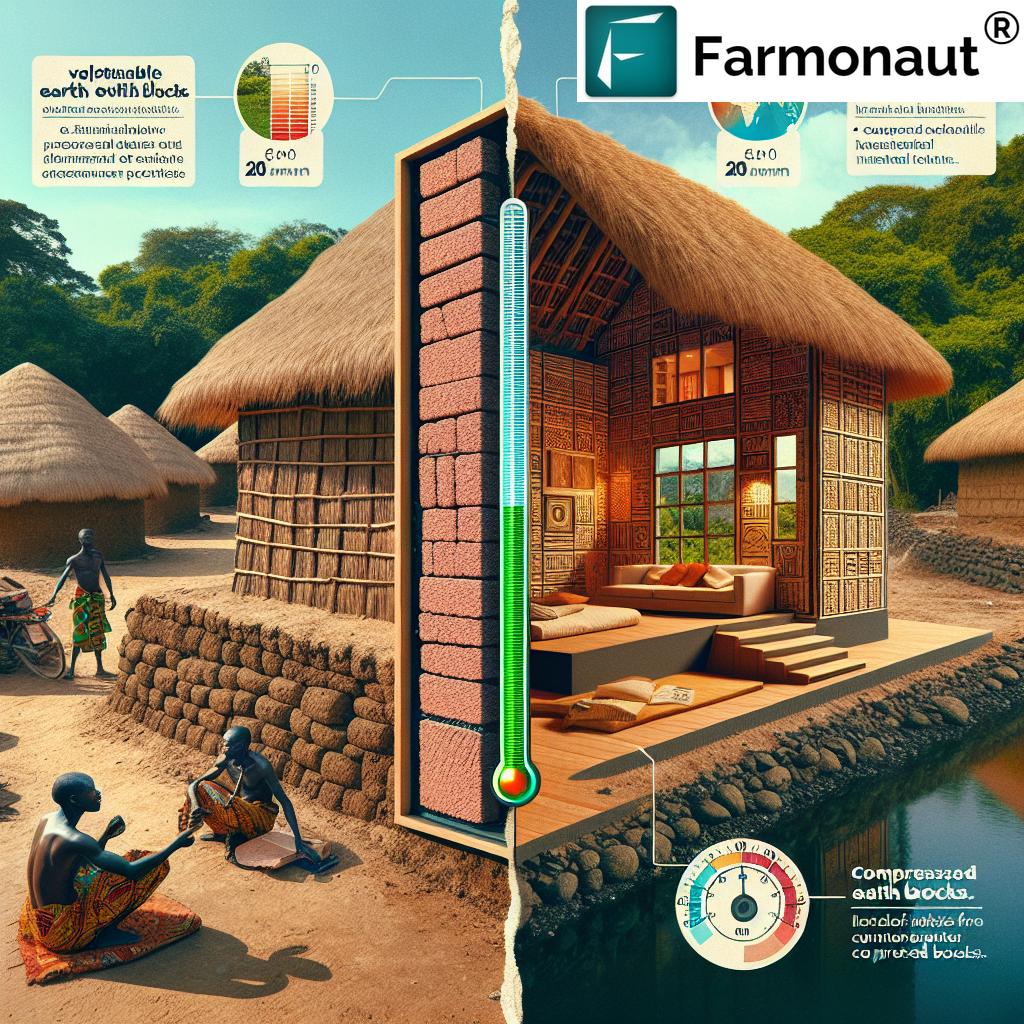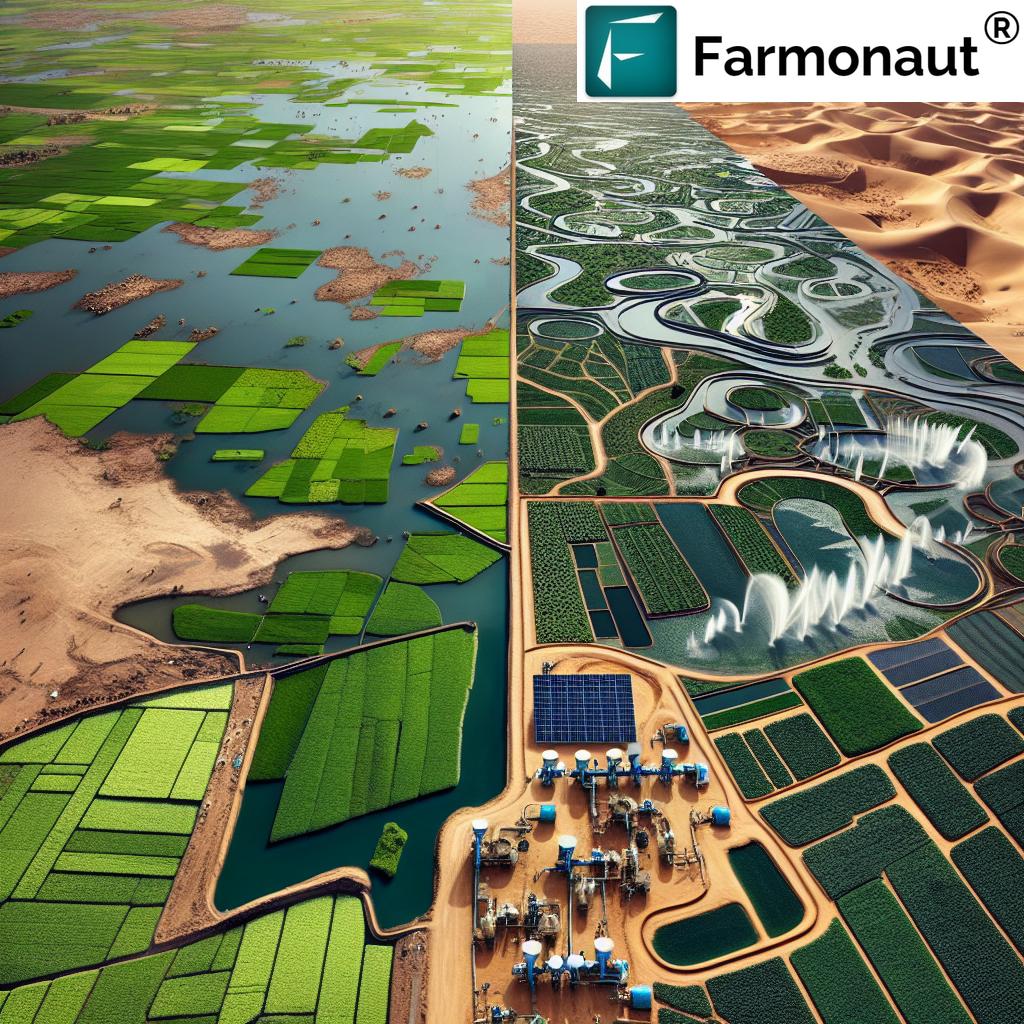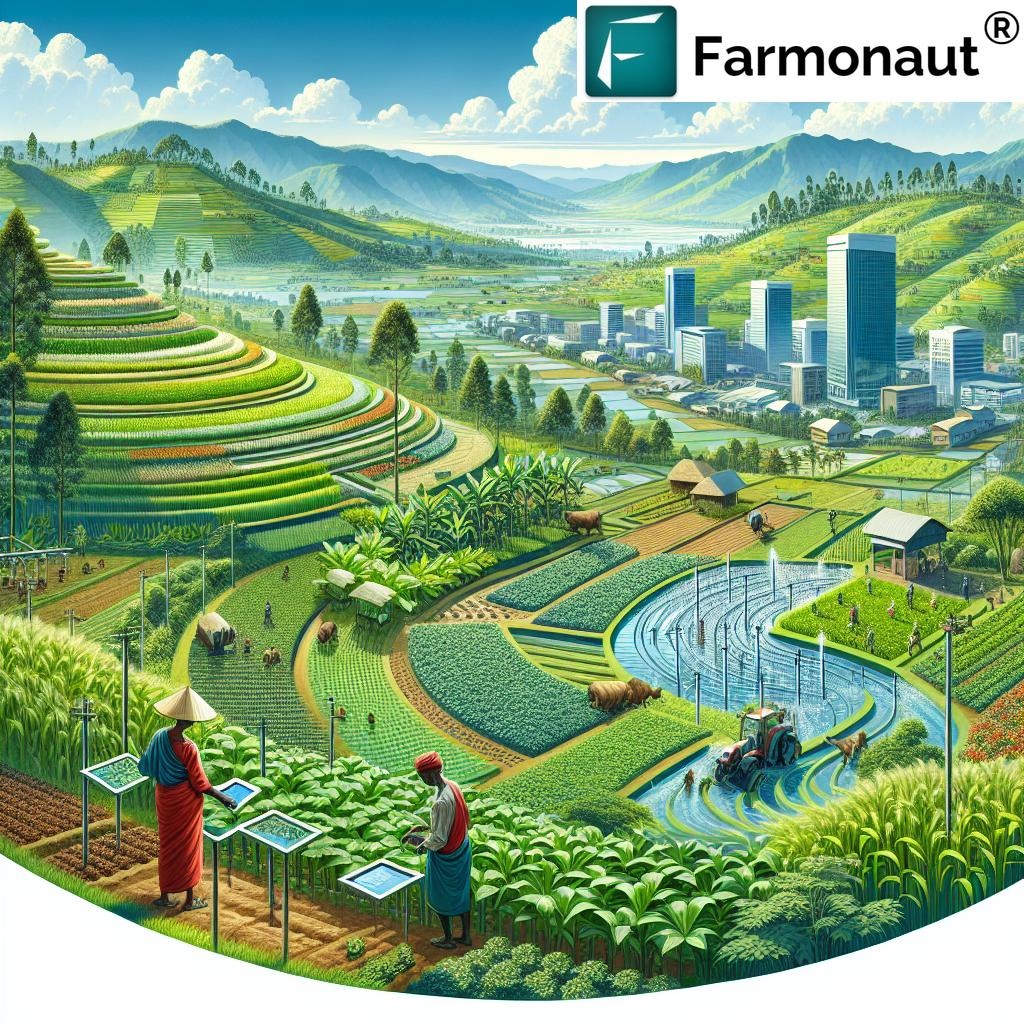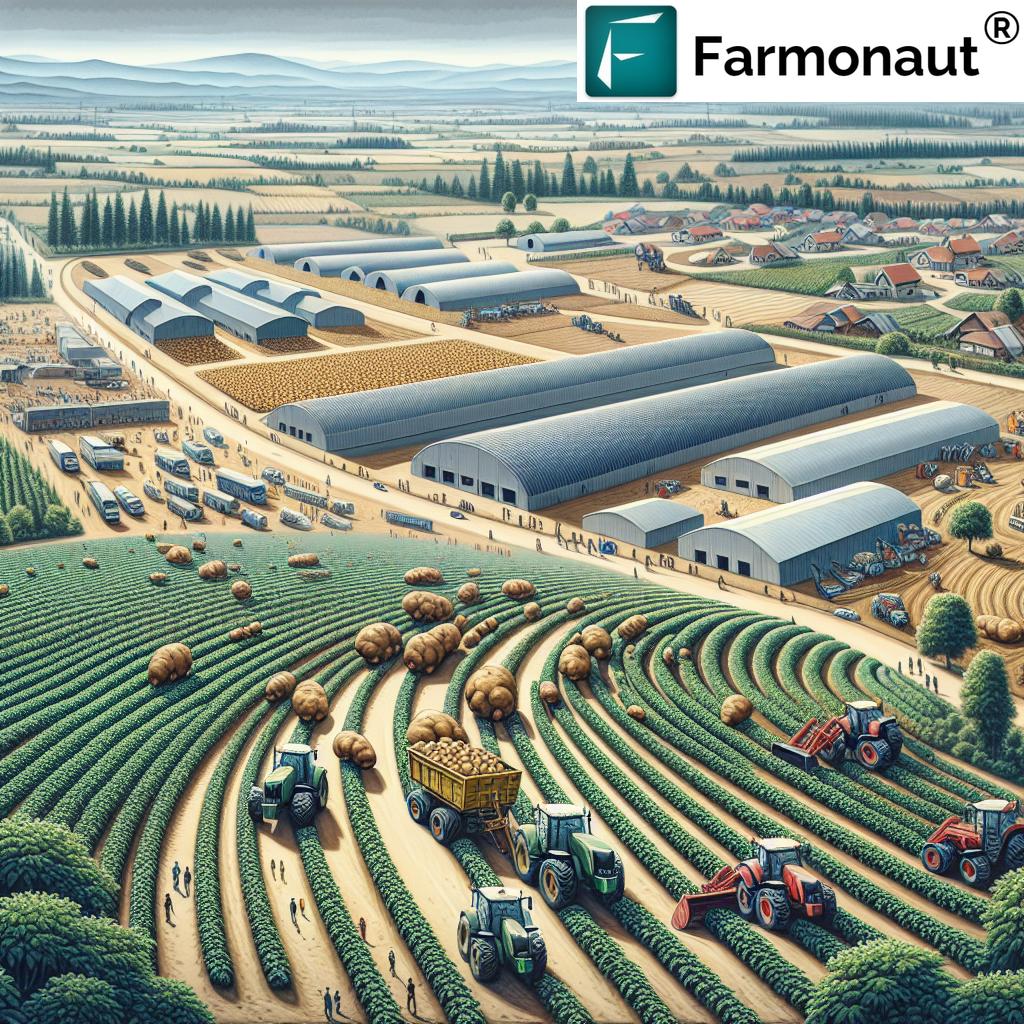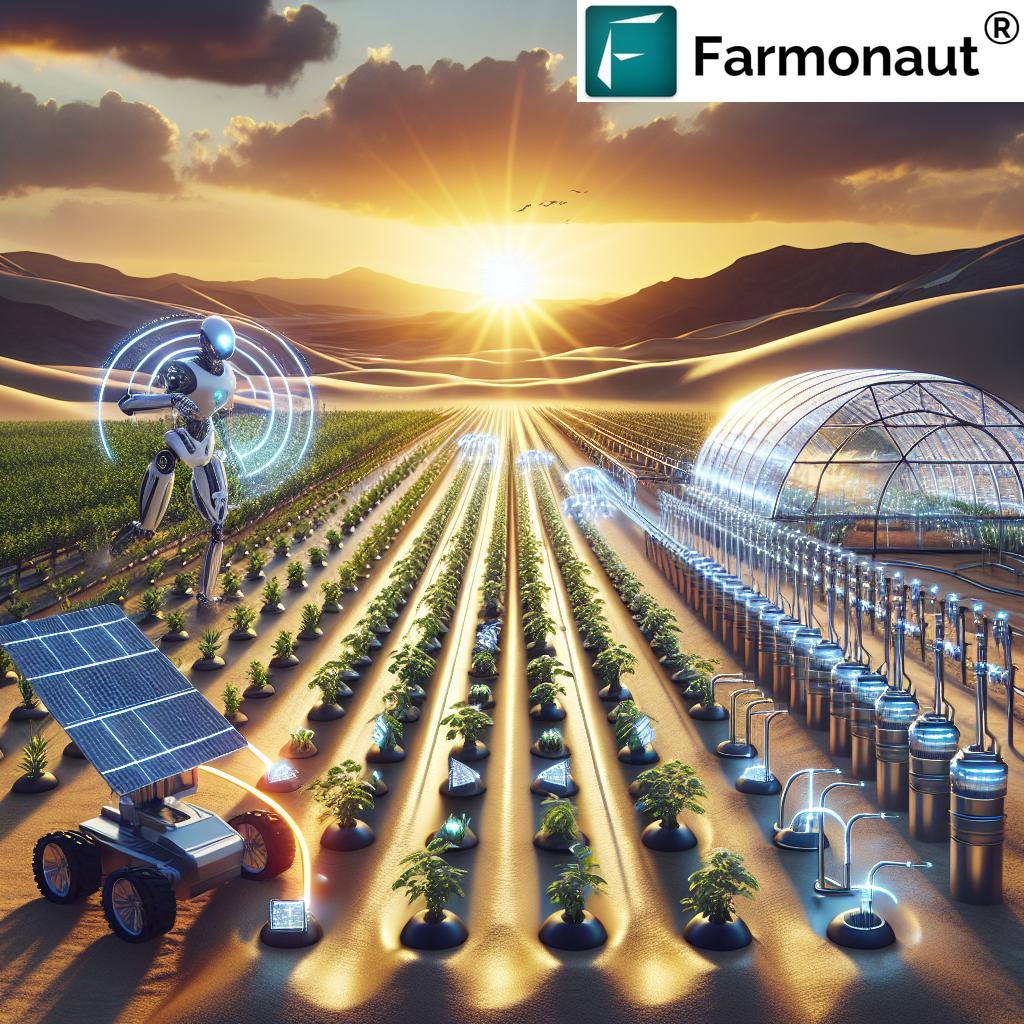Ethiopia-Mexico Agricultural Cooperation: Boosting Sustainable Farming Technologies and Soil Health
“Ethiopia’s Green Legacy initiative has led to planting billions of trees, contributing significantly to soil health improvement.”
In the ever-evolving landscape of global agriculture, we are witnessing a remarkable partnership unfold between two nations separated by vast distances but united in their commitment to agricultural advancement. Ethiopia and Mexico, two countries with rich agricultural heritage, have embarked on a journey of cooperation that promises to reshape the future of farming in both nations. This collaboration, focusing on sustainable agriculture technologies and soil health improvement, marks a significant milestone in international agricultural partnerships.
As we delve into the intricacies of this cooperation, we’ll explore how these two nations are working together to overcome environmental challenges, boost food security, and pave the way for a more sustainable agricultural future. From irrigation technology transfer to drought-resistant crop development, and from agricultural value chain enhancement to soil rehabilitation techniques, this partnership is set to make waves in the global agricultural community.
The Genesis of Ethiopia-Mexico Agricultural Cooperation
On April 10, 2025, in Addis Ababa, a pivotal meeting took place between Ethiopia’s Minister of Agriculture, Girma Amente (PhD), and the Ambassador of Mexico to Ethiopia, Alejandro Ives Estivill Castro. This meeting laid the foundation for a comprehensive agricultural cooperation between the two nations, focusing on several key areas:
- Agricultural technologies
- Value chain development
- Irrigation systems
- Drought-resistant crops
- Soil health improvement
- Support for Ethiopia’s Green Legacy initiative
The discussions highlighted the shared vision of both countries to modernize their agricultural sectors, with a particular emphasis on sustainable practices and technologies. This cooperation comes at a crucial time for Ethiopia, as the country strives to achieve food self-sufficiency and address critical environmental challenges.
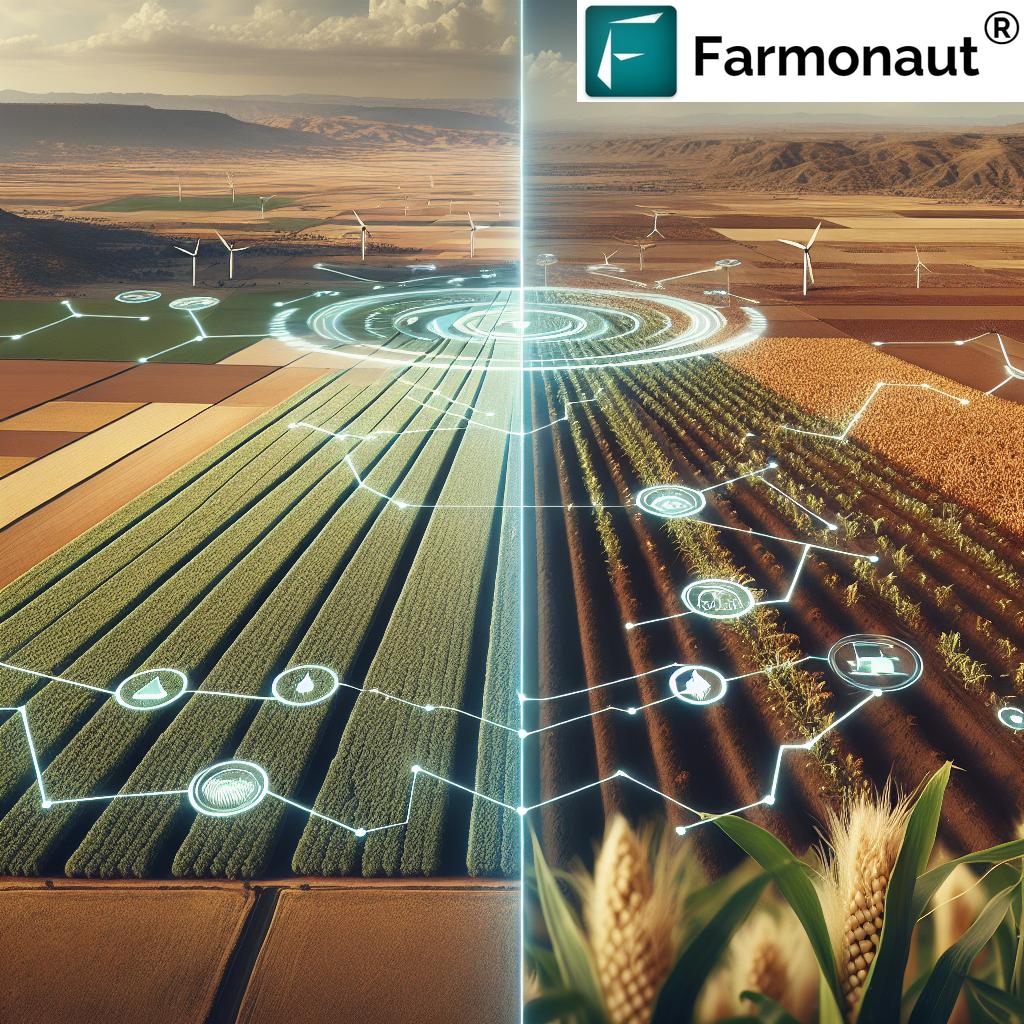
Irrigation Technology: A Game-Changer for Ethiopian Agriculture
One of the most significant aspects of this cooperation is the focus on irrigation technology transfer. Ethiopia has made remarkable strides in recent years, transitioning from exclusive reliance on rain-fed wheat production to embracing irrigation systems. This shift has been transformative, allowing for year-round cultivation and increased crop yields.
Mexico, with its extensive experience in advanced irrigation systems, is poised to play a crucial role in further enhancing Ethiopia’s irrigation capabilities. The transfer of Mexican irrigation technology could potentially revolutionize Ethiopian agriculture, particularly in regions prone to drought and water scarcity.
For farmers looking to optimize their irrigation practices, Farmonaut’s satellite-based crop health monitoring system can be an invaluable tool. By providing real-time data on soil moisture levels and crop health, Farmonaut enables farmers to make informed decisions about irrigation, ensuring efficient water usage and optimal crop growth.
Drought-Resistant Crop Development: A Response to Climate Change
“Mexico and Ethiopia are collaborating on drought-resistant crop development for over 60% of Ethiopia’s acidic and saline soil areas.”
In the face of climate change and increasing water scarcity, the development of drought-resistant crops has become a top priority for many agricultural nations. The Ethiopia-Mexico cooperation places significant emphasis on this area, with both countries pooling their resources and expertise to develop crop varieties that can thrive in challenging environmental conditions.
Ethiopia’s vast areas of acidic and saline soils present unique challenges for crop cultivation. By leveraging Mexico’s experience in developing crops for diverse climatic conditions, this collaboration aims to create varieties specifically adapted to Ethiopia’s soil types and climate patterns.
For farmers and agricultural researchers working on crop development, Farmonaut’s crop plantation and forest advisory services can provide valuable insights. By utilizing satellite imagery and AI-driven analysis, Farmonaut offers detailed information on crop health and growth patterns, which can be instrumental in developing and testing new crop varieties.
Agricultural Value Chain Development: From Farm to Table
A crucial aspect of the Ethiopia-Mexico agricultural cooperation is the focus on developing robust agricultural value chains. This encompasses everything from improving production methods to enhancing post-harvest handling, processing, and marketing of agricultural products.
Mexico’s experience in integrating small-scale farmers into global supply chains could prove invaluable for Ethiopia. By sharing best practices and technologies, Mexico can help Ethiopia create more efficient and inclusive agricultural value chains, benefiting farmers, processors, and consumers alike.
In this context, Farmonaut’s blockchain-based traceability solution can play a vital role. This technology ensures transparency and authenticity throughout the agricultural supply chain, from farm to consumer. By implementing such systems, Ethiopia can enhance trust in its agricultural products, potentially opening up new markets and improving the overall value of its agricultural exports.

Ethiopia’s Green Legacy Initiative: A Model for Sustainable Agriculture
One of the standout features of Ethiopia’s agricultural strategy is the Green Legacy initiative. This ambitious program, which has led to the planting of billions of trees across the country, is not just an environmental project but a comprehensive approach to improving soil health, water retention, and overall agricultural productivity.
The cooperation with Mexico provides an opportunity to further enhance and expand this initiative. Mexican expertise in agroforestry and sustainable land management practices could help Ethiopia optimize the benefits of the Green Legacy program, creating synergies between reforestation efforts and agricultural productivity.
For large-scale implementation and monitoring of such initiatives, Farmonaut’s large-scale farm management solutions can be incredibly useful. These tools allow for efficient monitoring of vast areas, providing real-time data on vegetation health, soil conditions, and the impact of reforestation efforts on the broader agricultural landscape.
Soil Health: The Foundation of Sustainable Agriculture
At the heart of the Ethiopia-Mexico agricultural cooperation lies a shared commitment to improving soil health. Ethiopia faces significant challenges in this area, with vast stretches of acidic and saline soils that limit agricultural productivity. The cooperation with Mexico aims to address these challenges through innovative soil rehabilitation techniques and sustainable farming practices.
Minister Girma Amente highlighted the presence of 7.5 million hectares of acidic soil and 11 million hectares of saline soil in Ethiopia, underscoring the urgent need for effective soil management strategies. Mexico’s experience in dealing with diverse soil types and its advancements in soil science can provide valuable insights for Ethiopia’s soil rehabilitation efforts.
For farmers and agricultural experts working on soil health improvement, Farmonaut’s carbon footprinting tool can be a game-changer. This feature allows for real-time monitoring of soil carbon levels, helping farmers and policymakers track the effectiveness of soil health initiatives and make data-driven decisions for sustainable land management.
Agricultural Mechanization: Boosting Productivity and Efficiency
Another key focus of the Ethiopia-Mexico cooperation is agricultural mechanization. Ethiopia is actively seeking to accelerate the adoption of modern farming equipment and technologies to boost productivity and efficiency in its agricultural sector.
Minister Girma Amente extended an invitation to Mexican private investors to engage in Ethiopia’s agriculture sector through both investment and technology transfer. This presents a unique opportunity for Mexican agricultural machinery manufacturers and agtech companies to enter the Ethiopian market, while simultaneously helping Ethiopia modernize its farming practices.
To optimize the use of agricultural machinery and manage resources efficiently, Farmonaut’s fleet management solutions can be invaluable. These tools help in tracking and managing agricultural machinery, ensuring optimal utilization, and reducing operational costs – a critical factor in the successful implementation of mechanization initiatives.
Knowledge Exchange and Capacity Building
A crucial aspect of the Ethiopia-Mexico agricultural cooperation is the emphasis on knowledge exchange and capacity building. Both countries recognize the importance of sharing best practices and experiences in agricultural modernization strategies.
Ambassador Alejandro Estivill expressed interest in visiting Bonga University and its surrounding areas to observe best agricultural practices in Ethiopia. This highlights the two-way nature of the cooperation, where both countries stand to learn from each other’s unique approaches to agriculture.
In this context of knowledge sharing, digital platforms like Farmonaut can play a pivotal role. By providing access to satellite-based crop monitoring and AI-driven advisory services, Farmonaut enables farmers and agricultural professionals to stay updated with the latest in precision agriculture technologies.
Formalizing the Cooperation: The Road Ahead
As the discussions between Ethiopia and Mexico progress, both nations are moving towards formalizing their cooperation through a Memorandum of Understanding (MoU). This MoU is expected to outline specific areas of collaboration, joint research initiatives, and mechanisms for technology transfer.
The formalization of this cooperation marks a significant step in Ethiopia’s journey towards food self-sufficiency and agricultural sector advancement. It also sets a precedent for South-South cooperation in agriculture, demonstrating how countries can work together to address common challenges and achieve shared goals.
Comparative Analysis of Ethiopia-Mexico Agricultural Cooperation
| Cooperation Area | Ethiopia’s Focus | Mexico’s Contribution |
|---|---|---|
| Irrigation Technology | Expanding irrigated wheat production | Transfer of advanced irrigation systems |
| Drought-Resistant Crops | Developing crops for acidic and saline soils | Expertise in breeding resilient crop varieties |
| Agricultural Value Chain | Improving post-harvest handling and processing | Sharing best practices in supply chain integration |
| Soil Rehabilitation | Addressing 18.5 million hectares of problematic soils | Techniques for soil health improvement |
| Agricultural Mechanization | Accelerating adoption of modern farming equipment | Investment and technology transfer in farm machinery |
The Role of Technology in Implementing Cooperation Initiatives
As Ethiopia and Mexico embark on this journey of agricultural cooperation, the role of technology in implementing and scaling these initiatives cannot be overstated. Advanced agricultural technologies will be crucial in realizing the full potential of this partnership.
Farmonaut, with its suite of satellite-based farm management solutions, is well-positioned to support the implementation of many aspects of this cooperation. From crop health monitoring to soil analysis, and from fleet management to carbon footprinting, Farmonaut’s technologies align closely with the goals of the Ethiopia-Mexico agricultural cooperation.
For instance, Farmonaut’s crop loan and insurance solutions can play a vital role in supporting the financial aspects of agricultural development. By providing satellite-based verification for crop loans and insurance claims, Farmonaut can help streamline access to financing for Ethiopian farmers, a crucial factor in adopting new technologies and practices.
Implications for Global Food Security
The Ethiopia-Mexico agricultural cooperation has implications that extend far beyond the borders of these two countries. As the world grapples with the challenges of feeding a growing population in the face of climate change, partnerships like this offer hope and a potential model for addressing global food security issues.
By focusing on sustainable agriculture technologies, soil health improvement, and resilient crop development, this cooperation contributes to the broader global effort to create more sustainable and productive food systems. The success of this partnership could inspire similar collaborations between other nations, potentially leading to a more interconnected and resilient global agricultural network.
Conclusion: A New Chapter in Agricultural Cooperation
The Ethiopia-Mexico agricultural cooperation represents a new chapter in international agricultural partnerships. By combining Ethiopia’s agricultural potential with Mexico’s technological expertise, this collaboration has the power to transform farming practices, boost productivity, and enhance food security in both nations.
As we look to the future, it’s clear that such partnerships, supported by innovative technologies like those offered by Farmonaut, will play a crucial role in shaping the future of global agriculture. The journey towards sustainable, productive, and resilient farming systems is a collective one, and collaborations like this light the way forward.
FAQs
- What are the main focus areas of the Ethiopia-Mexico agricultural cooperation?
The main focus areas include irrigation technology transfer, drought-resistant crop development, agricultural value chain enhancement, soil health improvement, and agricultural mechanization. - How does Ethiopia’s Green Legacy initiative relate to this cooperation?
The Green Legacy initiative, which involves large-scale tree planting, is part of Ethiopia’s efforts to improve soil health and agricultural productivity. The cooperation with Mexico aims to further enhance and expand this initiative. - What role can technology play in implementing the cooperation initiatives?
Technologies like satellite-based crop monitoring, AI-driven advisory systems, and blockchain-based traceability solutions can play a crucial role in implementing and scaling the cooperation initiatives. - How does this cooperation address soil health challenges in Ethiopia?
The cooperation focuses on developing soil rehabilitation techniques for Ethiopia’s vast areas of acidic and saline soils, leveraging Mexico’s expertise in soil science and management. - What are the potential global implications of this agricultural partnership?
This partnership could serve as a model for addressing global food security challenges, potentially inspiring similar collaborations between other nations and contributing to more sustainable global food systems.
As we conclude this exploration of the Ethiopia-Mexico agricultural cooperation, it’s clear that this partnership holds immense potential for transforming agriculture in both nations. By leveraging advanced technologies, sharing knowledge, and focusing on sustainable practices, Ethiopia and Mexico are paving the way for a more resilient and productive agricultural future.
For those interested in staying at the forefront of agricultural innovation, Farmonaut offers a range of tools and services that align perfectly with the goals of this cooperation. Whether you’re a farmer looking to optimize your operations, a researcher studying crop patterns, or a policymaker working on agricultural development, Farmonaut’s solutions can provide valuable insights and support.
Explore Farmonaut’s offerings:
Earn With Farmonaut: Join our affiliate program and earn 20% recurring commission by sharing your promo code and helping farmers save 10%. Onboard 10 Elite farmers monthly to earn a minimum of $148,000 annually—start now and grow your income!



